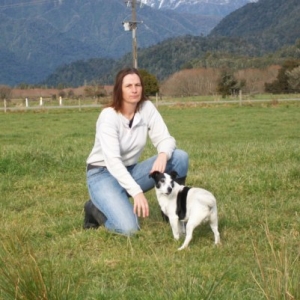With Southland drenched and the West Coast battered by a second week of storms, Federated Farmers believes much of New Zealand's farmland has benefited from summer rain excepting Hawke's Bay and parts of Gisborne.
"While farmers were getting worried in the Waikato before Christmas, rain in the early part of 2013 has farmers more worried about facial eczema instead," says Katie Milne, Federated Farmers adverse events spokesperson.
"As a West Coaster, the rain we have received is in line with a neutral to weak El Nino and sums up the challenges of farming here. As a result of weather over spring, our dairy farmers reached peak milk several weeks later than usual.
"We have checked with our provincial presidents in areas we had concerns with. Both the northern South Island and Wairarapa received some welcome rain, but we are also aware how quickly dry hot weather can sap that from the ground.
"It seems to be enough to keep the wolves at bay for now.
"Taranaki got good Christmas rain but since then it has been patchy with rain for some and none for others. Right now, dry hot nor'westers are perhaps the big issue for the Taranaki and Canterbury, the latter even seeing some fires breaking out.
"The picture for Gisborne is spotty with some areas having rain but things are looking dry north of Tolaga Bay.
"On the negative side of the ledger after speaking to our president Bruce Wills, the Hawke's Bay seems to have missed out. The current dry spell contrasts with this time last year when the region had good rainfall.
"This lack of summer rain makes Hawke's Bay Regional Council's Ruataniwha Plains Water Storage Project vital. With surplus water also coming down rivers in Otago and Canterbury, It pretty much underlines why we need to capture it when we can.
"It is gutting to see electricity dams spilling water that only runs out to sea when our economy is hostage to the vagaries of summer rainfall. We need to make a conscious decision to trap and store rainfall while we have heaps of it, for use when we don't.
"As it stands right now, we seem to be okay as we approach mid-summer. If we had commercial water storage in place rather than tied up in planning, soil moisture would become less of an economic lottery," Milne says.










